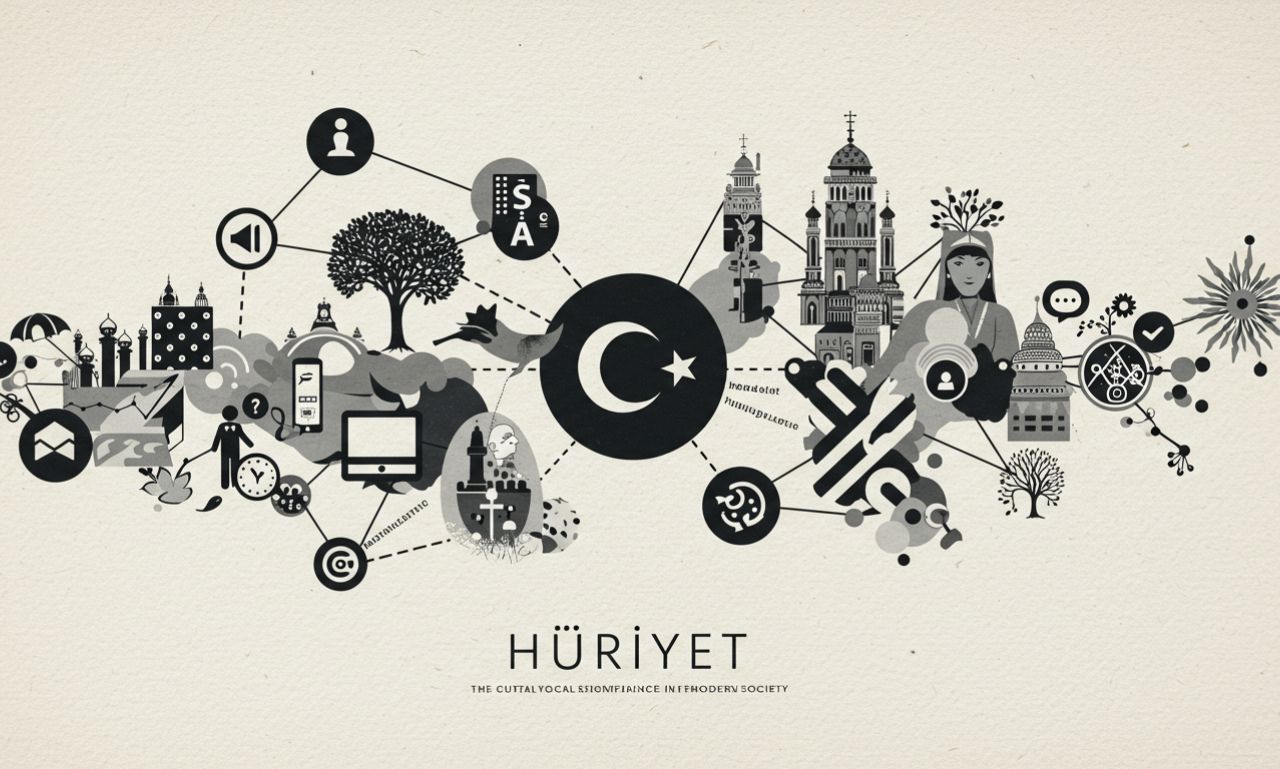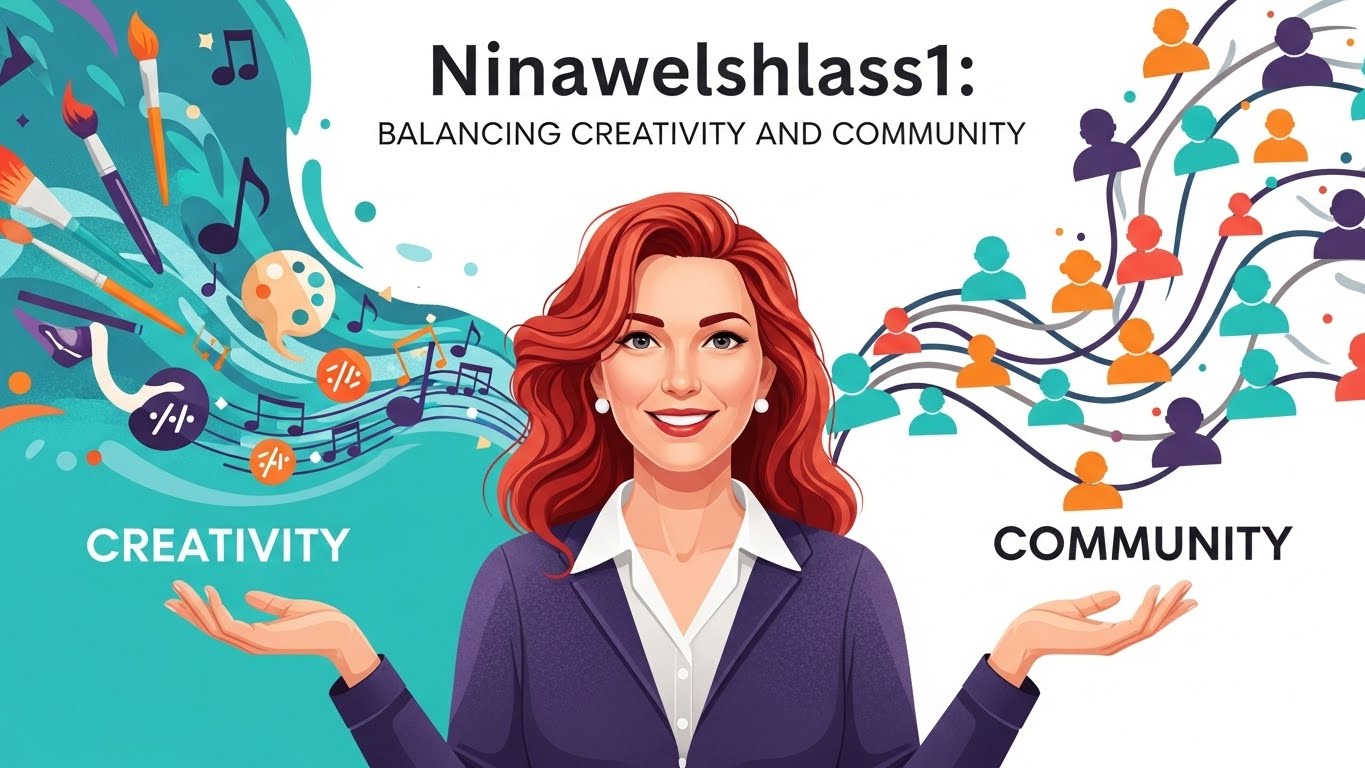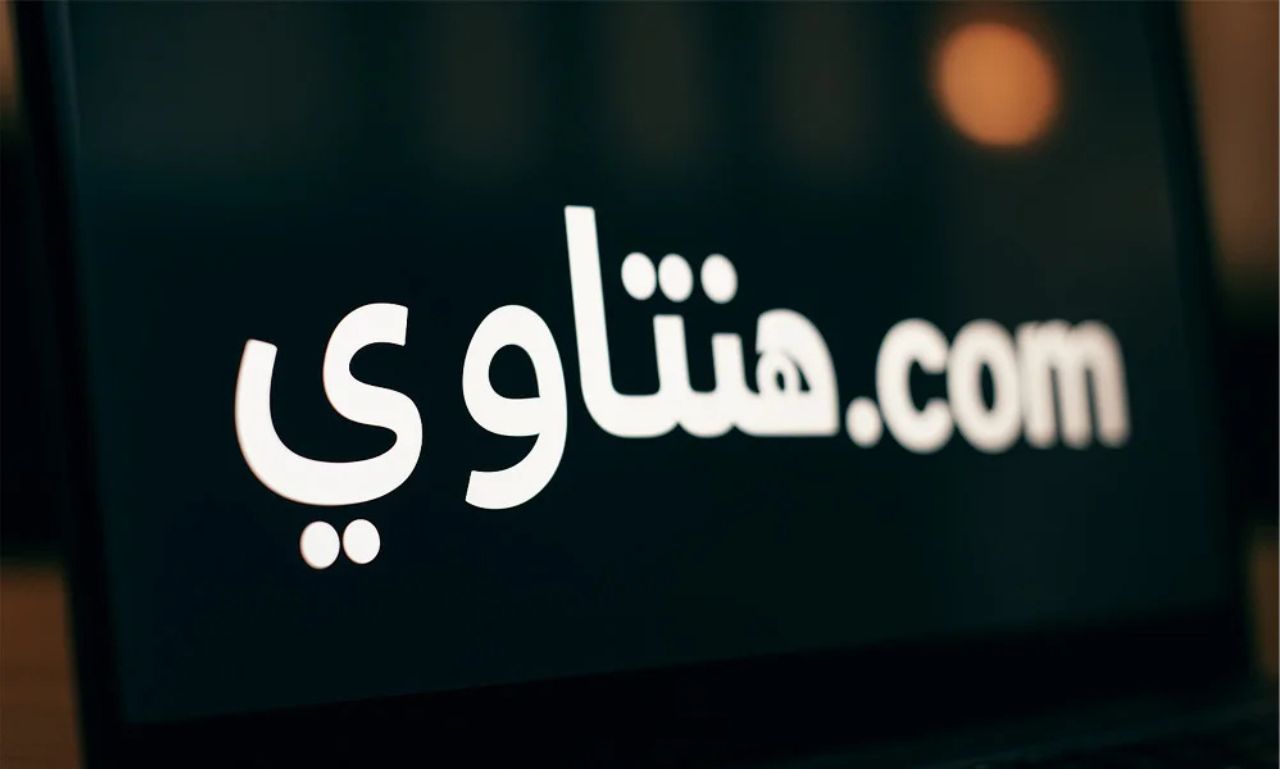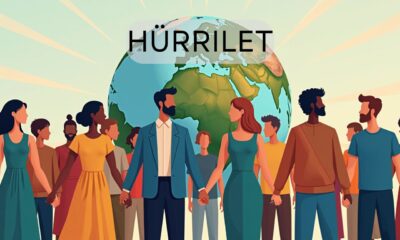Blog
hürrilet: The Cultural Significance of Freedom in Modern Society

Freedom is a concept that resonates deeply within the human spirit. It’s a word that sparks passion, ignites movements, and shapes societies. In Turkish, this idea is encapsulated in the term “hürrilet,” which embodies not just freedom but also the myriad ways it influences our lives today. The significance of hürrilet extends beyond mere definition; it serves as a lens through which we can examine our past struggles for autonomy and our ongoing quest for liberty in an increasingly complex world.
As we delve into what hürrilet truly means, we’ll explore its historical roots, its evolution through time, and how it has impacted culture and art. We’ll uncover why freedom remains a fundamental human right while addressing the challenges we face in maintaining it today. Join us on this journey to understand how hürrilet plays a pivotal role in promoting and preserving the very essence of freedom across different cultures—and discover inspiring case studies where these ideals come alive.
What is hürrilet?
Hürrilet is a Turkish term that translates to “freedom” or “liberty.” It embodies not just the absence of oppression, but also the presence of rights and opportunities for individuals to express themselves.
This concept encompasses various dimensions. It connects deeply with personal autonomy, social justice, and political expression. Hürrilet reflects a state where people can live without fear or constraint.
In many cultures, this idea has historical roots. Philosophers and activists have long championed freedom as an essential human value. Understanding hürrilet requires looking beyond mere definitions—it’s about recognizing its impact on daily lives.
When embraced fully, hürrilet fosters creativity in art and culture. It inspires innovation and progress across societies while nurturing diverse perspectives that enrich communities worldwide.
The history of freedom in society
The journey of freedom has deep roots in human civilization. Ancient societies often struggled with the concept, primarily viewing it through the lens of power and control. In many cases, freedom was reserved for a privileged few.
As civilizations evolved, thinkers like Socrates and Aristotle began to challenge these norms. Their ideas laid the groundwork for more egalitarian views on personal liberty.
The Enlightenment spurred significant changes, igniting revolutions that would redefine societal structures. Philosophers such as John Locke argued for natural rights, emphasizing individual freedoms over authoritarian rule.
In modern times, movements advocating civil rights have fought tirelessly against oppression. These struggles highlighted a universal yearning for autonomy and self-expression across various cultures.
Each era brought its own challenges and victories regarding freedom. The ongoing quest continues to shape our understanding of what it means to be truly free within society today.
How freedom has evolved over time
Freedom has undergone significant transformations throughout history. Initially, it was often limited to privileged classes in ancient societies. The concept of personal liberty was a luxury, primarily accessible to the elite.
As civilizations progressed, revolutions sparked new ideas about individual rights. Thinkers like John Locke and Rousseau championed freedom as an inherent human quality rather than a privilege granted by rulers.
The industrial era further shifted perspectives on freedom. Workers began to demand fair treatment and better conditions, laying groundwork for labor rights movements. This period marked a crucial expansion of freedoms beyond political realms into social and economic spheres.
In recent decades, globalization has introduced new dimensions of freedom. Digital communication opens avenues for expression but also poses challenges with surveillance and censorship.
Today’s battle for freedom encompasses issues such as gender equality, racial justice, and environmental sustainability—reflecting how multifaceted the quest for true autonomy has become across different cultures worldwide.
The impact of freedom on culture and art
Freedom serves as the lifeblood of creativity. Artists, writers, and musicians thrive in environments that embrace free expression.
When individuals are uninhibited, their work flourishes. New ideas emerge, pushing boundaries and challenging societal norms. The vibrant tapestry of culture is often woven from threads of diverse perspectives.
Think about how movements like the Renaissance or the Harlem Renaissance were born out of a quest for liberty. These eras showcased art that reflected personal experiences and collective struggles.
In literature, themes surrounding freedom have inspired countless narratives. Characters embark on journeys to seek autonomy or confront oppressive systems.
Musical genres such as jazz and punk arose from a desire to break free from conventions. Each note played becomes an anthem for liberation.
Freedom as a fundamental human right
It transcends borders and cultures, embodying an intrinsic value that every individual deserves.
As a fundamental human right, it empowers people to express themselves openly without fear. This expression fosters diverse thoughts and innovations, shaping societies for the better.
The Universal Declaration of Human Rights emphasizes this notion explicitly, advocating for liberty as essential for personal development and societal progress. When freedom flourishes, communities thrive.
Yet even today, many face constraints on their freedoms due to oppressive regimes or systemic injustice. These challenges remind us that vigilance is necessary in defending our rights.
Recognizing freedom as foundational can inspire movements worldwide—sparking change where it’s needed most. As we champion these values together, we contribute to a more equitable world where everyone can live authentically and fully engage with life’s possibilities.
Challenges to freedom in the modern world
In today’s world, challenges to freedom manifest in various forms. Surveillance technology has become ubiquitous, often infringing on privacy rights. Governments and corporations track online behavior, raising concerns about data ownership and personal autonomy.
Censorship is another significant threat. Many societies grapple with restrictions on speech and media. This stifling atmosphere hampers creativity and suppresses dissenting voices.
Moreover, socioeconomic disparities create barriers to true freedom for marginalized groups. Access to education, healthcare, and employment remains unevenly distributed.
As nationalism rises in some countries, xenophobia threatens the global fabric of human rights. The push for security can lead to the erosion of freedoms once taken for granted.
These complex issues highlight that while the quest for hürrilet continues globally, its path is fraught with obstacles requiring vigilance and activism from individuals committed to safeguarding liberty.
The role of hürrilet in promoting and preserving freedom
Hürrilet plays a crucial role in shaping our understanding of freedom. It serves as a guiding principle, emphasizing the importance of individual rights and collective liberties.
This concept encourages dialogue and fosters awareness around the necessity of freedom in various aspects of life. When communities embrace hürrilet, they cultivate an environment where diverse ideas can thrive.
Promoting educational initiatives rooted in hürrilet is essential for empowering future generations. Knowledge is key to preserving freedoms that many have fought hard to secure.
Additionally, hürrilet inspires artistic expression and cultural exchange, allowing voices from different backgrounds to share their experiences with others. This exchange enriches society as it highlights common struggles while celebrating unique identities.
As challenges arise globally, the essence of hürrilet becomes even more vital. By standing firm on these principles, individuals can actively resist oppression and advocate for justice on both local and global scales.
Case studies of hürrilet in action
One remarkable instance of hürrilet in action can be seen during the Arab Spring. Citizens across numerous countries took a stand, demanding their right to freedom and justice. Social media became an essential tool for mobilization, showcasing how collective voices could challenge oppressive regimes.
Another striking case is found in the arts. Street art movements worldwide reflect societal struggles for liberty. Artists use murals and graffiti to depict themes of resistance and hope, turning urban spaces into platforms advocating for change.
In recent years, protests advocating for climate action have also embraced hürrilet as a driving force. Activists assert that environmental rights are intertwined with human freedoms, highlighting how access to clean air and water relates directly to personal liberties.
These examples underscore how hürrilet transcends borders. It manifests through grassroots movements fighting for various causes—each echoing humanity’s innate desire for freedom.
Conclusion
Hürrilet embodies the essence of freedom, a value deeply woven into the fabric of modern society. Its significance extends beyond mere words; it represents an enduring aspiration for individuals and communities alike. The history of freedom showcases our relentless pursuit to break chains, challenge norms, and embrace diversity in thought and expression.
As we trace the evolution of freedom through various ages, it’s evident that cultural expressions—from literature to visual arts—have flourished under its shelter. Freedom fuels creativity and innovation, allowing societies to thrive culturally. It is not just a privilege but a fundamental human right that empowers people across borders.
Yet challenges persist today. Authoritarianism, censorship, and inequality threaten this vital principle in many parts of the world. This makes movements centered on hürrilet even more critical as they strive to promote awareness and ensure that freedoms are protected.
Through case studies showcasing activism in different regions, we see how communities mobilize around hürrilet to safeguard their rights against oppressive forces. These stories inspire hope while reminding us all about our role in advocating for freedom.
The journey toward true liberation is ongoing; each step taken towards hürrilet brings us closer to understanding what it means to be free in today’s complex world. Embracing this concept can ignite change within ourselves and lead us toward a future where everyone can experience the fullness of life unencumbered by restraints—this vision remains worth pursuing fervently.
Blog
Haskawana: A Hidden Gem in Nature’s Playground

Tucked away in nature’s embrace lies Haskawana, a serene escape that beckons adventure seekers and peace lovers alike. This hidden gem is not just another destination; it’s a vibrant tapestry woven with the threads of history, culture, and breathtaking landscapes. Whether you’re looking to reconnect with nature or seeking thrilling outdoor activities, Haskawana has something special for everyone.
Nestled between lush forests and winding rivers, this enchanting locale invites you to explore its wonders. With fresh air filling your lungs and stunning views at every turn, it’s hard not to feel invigorated here. Get ready to uncover what makes Haskawana an extraordinary playground waiting to be discovered!
What is Haskawana?
Haskawana is a picturesque destination that beckons nature lovers and adventure seekers alike. Nestled within lush landscapes, it offers an escape from the hustle and bustle of daily life.
This hidden gem is often overlooked by mainstream tourists, making it a perfect spot for those seeking tranquility. The area boasts pristine lakes, dense forests, and rolling hills that create stunning vistas throughout the seasons.
Wildlife enthusiasts will find Haskawana particularly captivating. It’s home to diverse flora and fauna, allowing visitors to immerse themselves in the beauty of nature.
Rich in cultural heritage, Haskawana also showcases local traditions through art festivals and community events. This blend of natural splendor and cultural significance makes it a unique location worth exploring. Whether you’re hiking scenic trails or enjoying water sports on its serene lakes, Haskawana promises memorable experiences around every corner.
History and Culture of Haskawana
Haskawana is steeped in rich history, woven together by the threads of indigenous culture and early settlers. This serene location was once inhabited by Native American tribes who revered the land’s natural beauty.
As time unfolded, European explorers arrived, drawn by Haskawana’s lush landscapes and abundant resources. Their influence shaped the region’s development, leading to a blend of traditions that still resonate today.
Local festivals celebrate this diverse heritage, showcasing music and art that reflect both native roots and settler influences. Visitors can often witness traditional crafts being displayed at community events throughout the year.
The area’s historical landmarks offer glimpses into its past. From ancient trails to rustic cabins, every corner tells a story waiting to be discovered—inviting travelers to connect with Haskawana’s vibrant culture through exploration and appreciation.
Top Attractions and Activities in Haskawana
Haskawana is a treasure trove of attractions that cater to every outdoor enthusiast. The picturesque lakes are perfect for kayaking or canoeing, providing a serene backdrop for adventurers.
For those who prefer solid ground, the winding trails offer breathtaking views and opportunities for wildlife spotting. Hikers can immerse themselves in nature while tackling various difficulty levels.
Thrill-seekers will love the array of water sports available at local beaches. Jet skiing and paddleboarding provide an adrenaline rush against stunning scenery.
Don’t miss the vibrant local arts scene either—galleries showcase regional talent and craftsmanship, making it a cultural hotspot too.
Seasonal festivals bring the community together with music, crafts, and delicious food stalls. Each visit offers something unique to experience in this hidden gem of nature’s playground.
Unique Experiences in Haskawana: Camping, Hiking, and Water Sports
Haskawana boasts an incredible outdoor playground perfect for adventurers. Camping under the stars is a must here. The serenity of nature surrounds you, creating a peaceful retreat.
Hiking trails wind through lush forests and scenic vistas. Each path offers its own unique view, making every trek worthwhile. Whether you’re seeking an easy stroll or a challenging hike, Haskawana has something to suit your level.
Water sports enthusiasts will find their paradise as well. Kayaking and canoeing allow exploration of hidden coves and tranquil waters. Fishing is also popular; the local lakes teem with various fish species waiting to be caught.
Don’t forget about the thrill of paddleboarding on calm water days! These experiences truly showcase Haskawana’s natural beauty while providing unforgettable adventures in one breathtaking location.
Local Cuisine and Dining Options in Haskawana
Haskawana delights food lovers with its diverse local cuisine. The area is known for fresh ingredients sourced from nearby farms and waterways.
Enjoy hearty meals at family-owned restaurants that serve traditional dishes, all infused with regional flavors. Don’t miss out on the famous Haskawana stew, a comforting blend of seasonal vegetables and local meats.
For those who crave something lighter, quaint cafés dot the landscape offering artisanal sandwiches and freshly baked pastries. Pair your meal with locally brewed coffee or herbal teas harvested from surrounding herbs.
During warmer months, outdoor dining becomes popular. Picture yourself savoring delicious barbecue while taking in stunning views of nature’s playground.
Food festivals throughout the year celebrate culinary creativity and showcase talented chefs committed to keeping Haskawana’s gastronomic traditions alive. Whether you’re looking for fine dining or casual bites, there’s always something tempting waiting around every corner in this hidden gem.
Accommodation Options in Haskawana
Haskawana offers a variety of accommodation options to suit every traveler’s needs. For those seeking comfort, cozy lodges and charming bed-and-breakfasts provide a warm atmosphere and personalized service.
If you prefer a touch of adventure, consider camping under the stars at designated sites surrounded by nature’s beauty. The campgrounds offer basic amenities, making it easy to connect with the great outdoors.
For larger groups or families, rental cabins dotting the landscape are perfect for creating lasting memories together. These homes away from home come equipped with kitchens and communal spaces for gatherings after a day of exploration.
Budget travelers will find hostels and budget-friendly motels in Haskawana as well. With all these choices available, there’s something to accommodate everyone’s preferences while enjoying this hidden gem in nature’s playground.
Best Times to Visit Haskawana
The best time to visit Haskawana truly depends on the experience you’re seeking. Spring offers a refreshing awakening of nature, with vibrant blooms and mild temperatures perfect for exploring.
Summer is ideal for water sports enthusiasts. The lakes are inviting, making it a great season for kayaking, fishing, or simply soaking up the sun by the shore.
Autumn transforms Haskawana into a canvas of rich reds and golds. Hiking trails become particularly enchanting during this time as foliage bursts with color.
Winter brings its own charm. Snow-covered landscapes turn Haskawana into a winter wonderland, perfect for cozy cabin stays and snowshoeing adventures.
Each season has its allure, catering to different interests and activities. Plan your trip around what excites you most about this hidden gem in nature’s playground.
Tips for Exploring Haskawana
When exploring Haskawana, start with a good pair of hiking boots. The terrain can be rugged, and comfort is key to enjoying the stunning scenery. Don’t forget your camera. Every corner offers breathtaking views worth capturing. Early morning or late afternoon light can add magic to your photos.
Stay hydrated and bring snacks while you trek through nature’s wonders. There are numerous trails that might surprise you, so fuel up along the way. Engage with locals; they often have hidden gems to share about Haskawana’s history and culture.
Always check the weather forecast before heading out. Conditions can change rapidly in this beautiful wilderness. Respect wildlife by keeping a safe distance and not feeding them. Observing animals in their natural habitat is part of what makes Haskawana special.
Conclusion
Haskawana is truly a hidden gem in nature’s playground. Its breathtaking landscapes and rich cultural tapestry offer something for everyone. Whether you’re an adventurous spirit seeking thrills or someone looking to unwind in serene surroundings, Haskawana has it all.
The diverse range of activities from hiking the scenic trails to diving into exhilarating water sports—ensures that every visit feels fresh and exciting. Pair these adventures with delightful local cuisine, and you have a recipe for unforgettable memories.
Finding accommodation that suits your needs is easy here, making it accessible for both short getaways and longer retreats. The best times to explore this enchanting destination can vary based on your preferred activities, so planning around seasonal highlights can enhance your experience.
Blog
How to Identify Genuine Gautam Rice Products While Buying

When it comes to choosing premium rice, the brand and quality matter more than anything else. Rice buyers today are more conscious about purity, grain length, aroma, and nutritional value. Among the many brands available, Gautam Rice has earned a strong reputation for quality and trust. However, the increase in demand has also resulted in duplicate and low-grade products being sold in the market. Buying fake products can lead to poor taste, health concerns, and wasted money. This is why learning how to identify genuine Gautam Rice products is essential, especially for buyers who want the Best Basmati Rice in UAE or anywhere else in the world.
This guide explains the practical steps to verify authenticity, recognize quality standards, and make informed purchasing decisions.
1. Check the Packaging Quality and Branding
The first and most visible sign of authenticity is packaging. Genuine Gautam Rice comes in high-quality sealed packaging that maintains aroma and prevents contamination. When buying:
- Look for proper branding, printed label, and brand logo
- Verify spelling and design consistency
- Ensure the bag is not tampered, resealed, or damaged
- Check that information such as batch number, production date, and expiry date is clearly visible
Counterfeit rice often comes in cheap packaging, with faded print or spelling errors. Genuine packaging reflects a professional finish and is sturdy enough to protect the grains from moisture and insects.
2. Look for Certifications and Quality Seals
Authentic rice brands usually carry multiple certifications that confirm quality and safety standards. Before buying, check for:
- FSSAI or local food authority approval
- ISO or HACCP certification
- Export quality certificates
These markings are typically printed on the back of the pack. If you are buying products marketed as the Best Basmati Rice in UAE, certification is a must because imported products undergo strict regulatory checks. Lack of clear certification is a warning sign that the product may not be genuine.
3. Verify the Grain Quality Before Cooking
High-quality Gautam Rice has specific visual features. A few grains in your hand can tell you a lot:
- Long, slender, and uniform grains
- No broken pieces or powdery residue
- Consistent pale white or golden sheen
- No artificial scent or chemical smell
Fake products may contain grains of different sizes, shapes, and colours. When cooked, genuine Gautam Rice expands well, remains fluffy, non-sticky, and offers a rich aroma. Always check raw grains carefully before preparing meals.
4. Check Aroma and Taste After Cooking
A true rice lover can easily identify quality by aroma and taste. Genuine Gautam Rice is known for its natural fragrance, especially in Basmati varieties. The aroma is subtle, earthy, and rich. When cooked:
- Grains stay separate and do not stick together
- Rice becomes long and fluffy
- Taste is smooth, natural, and slightly nutty
Artificial fragrances are often added to inferior rice to imitate aroma. If the smell is too strong or chemical-like, it is most likely not genuine.
5. Buy from Trusted Suppliers or Authorized Stores
One of the simplest ways to avoid counterfeit products is to purchase only from trusted stores. Look for:
- Authorized retail partners
- Reputed supermarkets
- Brand’s official website
- Well-known online grocery platforms
Avoid buying loose rice without packaging, especially if the seller cannot confirm the source. Whether you are purchasing locally or searching for the Best Basmati Rice in UAE, reliable sellers ensure you receive authentic stock.
6. Compare Price with Market Standards
Unusually low price is a major red flag. High-quality Gautam Rice undergoes careful processing, polishing, and packaging, which makes it premium. Fake or mixed rice is often sold at very cheap rates. If a price seems too good to be true, it probably is. Always compare with:
- Branded store price
- Online store price
- Price of similar Basmati varieties
Paying slightly more ensures authenticity, quality, and satisfaction.
7. Read Consumer Reviews and Brand Reputation
Another powerful way to verify genuine rice products is by checking customer reviews. Today, buyers share feedback online about everything:
- Taste
- Aroma
- Packaging quality
- Cooking experience
Good brands like Gautam Rice have strong reputation and loyal customers. When the reviews are consistently good, it is a sign you are buying the right product. Many people searching for the Best Basmati Rice in UAE often choose premium brands because of reliability and positive feedback.
8. Avoid Products with Mixed or Unclear Labels
Sometimes counterfeit rice is sold under names that are very close to the original brand. You may see spelling variations or mixed labels. Be careful of:
- Similar packaging shade
- Slight name changes
- No brand address or contact information
- No manufacturing details
Genuine rice always provides manufacturer’s name, address, and customer care details. If the label lacks clarity, do not purchase.
9. Ask for Batch Details or QR Verification
Many modern brands now use QR codes or batch numbers to track authenticity. Before buying, simply scan the code to verify whether the product is genuine. This helps trace the rice from mill to store. If the seller hesitates or the batch number is missing, look for another pack.
Conclusion
Buying genuine rice is not just about taste—it is about health, value, and quality. Authentic Gautam Rice delivers the right aroma, texture, and nutritional value when cooked. Fake or low-quality rice can affect your food experience and waste your money. By checking packaging, inspecting grains, verifying certifications, and choosing trusted sellers, you can confidently select the right product every time.
For families, retailers, and restaurants looking for the Best Basmati Rice in UAE, identifying genuine products ensures premium taste and satisfaction. Always follow the above tips, choose trusted brands, and enjoy the rich flavour of authentic rice in every meal.
Blog
UPERFECT: Making Displays More Portable, Practical, and Flexible

As work, gaming, and entertainment become less tied to a single desk, portable monitors are no longer a niche product, they’re a practical solution for modern lifestyles. Whether you’re working remotely, traveling often, gaming on a console, or just want a second screen without committing to a bulky setup, flexibility matters.
This is where UPERFECT has carved out its space. The brand focuses on portable monitors and flexible display solutions designed for people who move between devices and locations. From compact travel screens to larger portable gaming monitors, UPERFECT aims to make displays easier to carry, easier to connect, and easier to fit into everyday life.

About UPERFECT: Vision and Growth
Founded in 2018, UPERFECT entered the market with a simple idea: displays shouldn’t be heavy, fixed objects that limit how and where you work or play. Instead, they should adapt to different environments and use cases.
Since launching its first 4K flagship monitor, the company has shipped over one million units worldwide, reaching users in 100+ countries. Their product lineup has grown quickly and now includes portable monitors ranging from 13.3 inches to over 24 inches, with options that cover:
- 2K, 3K, and 4K resolutions
- High refresh rates (120Hz, 144Hz, 165Hz)
- IPS and OLED panels
- Adaptive sync and gaming-focused features
The goal is clear: offer something for gamers, remote workers, creatives, students, and travelers, all without the cost or space requirements of traditional desktop monitors.
Why UPERFECT Has Gained Attention
True Portability: A Monitor That Moves with You
One of UPERFECT’s biggest strengths is portability. Most of their monitors are slim, lightweight, and easy to pack, making them ideal for people who work or study outside a fixed office.
You can carry one alongside your laptop and instantly have a dual-screen setup at a café, coworking space, hotel room, or temporary workstation. For many users, that extra screen alone can significantly improve productivity.
These displays also work well as either a secondary screen or, in compact setups, a primary display, depending on your needs.
A Practical Balance of Quality and Performance
UPERFECT doesn’t focus on just one type of user. Their monitors often strike a balance between:
- Sharp resolutions (2K to 4K) for clear text and detailed visuals
- High refresh rates on gaming models for smoother motion
- IPS or OLED panels for wide viewing angles and decent color accuracy
This makes them flexible enough for work during the day, creative tasks in the evening, and gaming or entertainment at night, using the same screen.
Easy Setup and Broad Compatibility
Another reason many users choose UPERFECT is simplicity. Most monitors support:
- USB-C (video, power, and audio through a single cable)
- HDMI or mini-HDMI
- Sometimes VESA mounting
This means they work with laptops, desktops, gaming consoles, handheld PCs, and other compatible devices without complicated setup or drivers. For people who switch between multiple devices, this plug-and-play approach is a big advantage.
Good Value for the Price
Compared to premium desktop monitors, UPERFECT portable displays are generally more affordable. While they don’t aim to compete with high-end studio monitors, they offer many features users care about, resolution, refresh rate, portability, at a more accessible price point.
For students, freelancers, travelers, or anyone building a compact setup, this balance of cost and capability is often the main appeal.
Who Benefits Most from UPERFECT Monitors? UPERFECT monitors tend to work best for:
- Remote workers and students who need extra screen space for multitasking ● Digital nomads and travelers who change work locations often
- Gamers using laptops or consoles in small or temporary setups
- Creative professionals who want decent color quality away from their main studio ● Casual users looking to improve their viewing experience without a full desktop setup What Real Users Say: The Good and the Not-So-Good User feedback on UPERFECT is mixed, which is common for value-focused brands. Common Praise
Many users highlight:
- Easy setup and strong portability
- A noticeable productivity boost when used as a second screen
- Good image quality for the price
- Generally helpful customer support when issues arise
For casual use and travel, many buyers feel the monitors “do exactly what they’re supposed to do.”
Common Complaints
That said, there are recurring concerns:
- Some users report reliability issues, such as flickering or displays failing after a few months
- Color consistency can vary between units
- Features like HDR or adaptive sync may not always perform as expected ● Occasional complaints about slow refunds or warranty handling
Because of this, experienced buyers often recommend testing the monitor thoroughly as soon as it arrives, checking colors, brightness, refresh rate, and connectivity while you’re still within the return window.
Smart Tips Before You Buy
If you’re considering a UPERFECT monitor, keep these points in mind:
- Be clear about your use case, portable monitors are best as companions, not always full replacements
- Test immediately for dead pixels, flicker, and color issues
- Don’t expect premium-level perfection at this price
- Use external speakers or headphones for better audio
- Keep receipts and documentation in case warranty support is needed
Final Thoughts: A Flexible Option, If You Choose Carefully
UPERFECT has built a strong reputation by addressing a real need: portable, flexible displays that fit modern work and gaming habits. Their wide product range, competitive pricing, and practical features make them a solid option for many users.
Blog
Grasshopper Budo Shape 2022: How This Trend is Shaping Contemporary Architecture

Architecture is constantly evolving, and every year brings new trends that redefine our built environment. One of the standout trends is the Grasshopper Budo Shape 2022. This innovative design approach seamlessly blends form with function, creating structures that are as visually striking as they are efficient. With roots deeply embedded in computational design, this trend has captured the imagination of architects and designers around the world.
As we explore the essence of Grasshopper Budo Shape 2022, it’s clear how this concept is reshaping contemporary architecture. From organic forms to intricate patterns, its influence can be seen across a wide range of projects. Let’s dive into what makes this trend so compelling and how it continues to transform our architectural landscape today.
What is Grasshopper Budo Shape 2022?
Grasshopper Budo Shape 2022 represents a fascinating evolution in design methodology. It merges traditional Japanese aesthetics with cutting-edge technology, creating dynamic forms that capture attention.
This concept leverages the capabilities of Grasshopper software, allowing architects to explore complex geometries and organic shapes. The term “Budo” refers to martial arts, symbolizing precision and discipline in form-making.
By integrating natural movements into architectural designs, this approach emphasizes fluidity and resilience. Each structure embodies harmony between function and artistic expression.
The 2022 iteration showcases innovative techniques that push boundaries further than before. As designers experiment with algorithms, they unlock new potential for sustainable architecture.
Incorporating these principles requires a blend of creativity and technical skill. It’s not just about building; it’s about crafting experiences through spatial awareness and thoughtful design choices.
The History of Grasshopper Budo Shape
The Grasshopper Budo Shape has its roots in the evolution of computational design. Emerging from digital modeling tools, it quickly gained traction among architects and designers seeking innovative forms.
In 2007, the introduction of Grasshopper as a plugin for Rhinoceros revolutionized architectural practices. This visual programming interface allowed users to create complex geometries with ease.
The term “Budo” reflects martial arts philosophies intertwined with design—a balance between strength and elegance. As practitioners explored this concept, they began to blend traditional techniques with modern technology.
By 2022, the Grasshopper Budo Shape became synonymous with avant-garde architecture. Designers embraced its potential to challenge conventional aesthetics while providing functional solutions.
This journey transformed how architects perceive space, encouraging experimentation and creativity across diverse projects worldwide.
How Grasshopper Budo Shape is Used in Contemporary Architecture
Grasshopper Budo Shape 2022 is revolutionizing contemporary architecture by introducing fluidity and complexity in design. This innovative approach allows architects to explore organic forms that were previously challenging to achieve.
Using parametric design tools, architects can manipulate shapes dynamically. This enables the creation of structures that respond beautifully to their environment while maintaining structural integrity.
The Budo shape’s versatility lends itself well to various building types, from residential homes to grand public spaces. Designers are able to experiment with light and shadow effects through intricate geometries.
Moreover, integrating this shape encourages collaboration among architects and engineers. Teamwork results in more efficient designs that push boundaries. As a result, Grasshopper Budo Shape elevates aesthetic appeal while enhancing functionality within urban landscapes.
Examples of Buildings Using Grasshopper Budo Shape
Several notable buildings showcase the innovative use of Grasshopper Budo Shape 2022 in their designs. One standout example is the Vitra Fire Station in Germany. Its dynamic forms and fluid lines highlight how this design approach can create movement within static structures.
In Asia, the Harbin Opera House stands as a testament to this trend. Its undulating exterior reflects natural elements, bringing an organic feel to modern architecture.
Another impressive structure is the Elbphilharmonie Concert Hall in Hamburg. This building blends traditional shapes with contemporary aesthetics, showcasing versatility through Grasshopper Budo Shape principles.
Each project illustrates unique interpretations of space and form while pushing architectural boundaries. Designers are increasingly drawn to these structures for their ability to harmonize functionality with artistic expression.
Benefits and Challenges of Incorporating Grasshopper Budo Shape in Architecture
Incorporating Grasshopper Budo Shape 2022 into architecture offers innovative design possibilities. It allows for complex forms that challenge traditional aesthetics. Architects can create unique structures that stand out in urban landscapes.
However, the benefits come with challenges. Mastering this technique requires advanced software skills and a deep understanding of parametric design principles. Not all architects are familiar with these tools, which can limit its adoption.
Additionally, while the aesthetic appeal is undeniable, there may be practical concerns regarding structural integrity and material efficiency. Ensuring that designs are both beautiful and functional demands careful planning.
Sustainability is another consideration. While some designs enhance energy efficiency, others might lead to increased resource use if not properly managed. Balancing creativity with practicality remains essential for successful implementation.
The Impact of Grasshopper Budo Shape on Sustainable Design
Grasshopper Budo Shape 2022 is revolutionizing sustainable design in architecture. Its fluid forms and organic structures promote harmony with the environment. This approach minimizes material waste through optimized digital modeling, allowing architects to create more efficient designs.
Buildings that embrace this shape often integrate natural light and ventilation effectively. The result is improved energy efficiency, reducing reliance on artificial lighting and heating systems.
Moreover, these innovative designs can encourage biodiversity by incorporating green roofs or vertical gardens. Such features not only enhance aesthetics but also support local ecosystems.
The adaptability of Grasshopper Budo Shape makes it suitable for various climates and landscapes. Architects can customize their projects to respond better to environmental challenges while maintaining an artistic flair.
This trend signifies a shift towards architecture that prioritizes ecological responsibility without sacrificing creativity or functionality. Grasshopper Budo Shape transforms how we perceive sustainability in modern architectural practices.
Future Predictions for the Use of Grasshopper Budo Shape in Architecture
As technology advances, the potential of Grasshopper Budo Shape 2022 in architecture is limitless. Designers are expected to push boundaries even further, creating structures that were once deemed impossible.
Imagine buildings that adapt their shapes based on environmental conditions. With algorithms becoming more sophisticated, real-time data integration could lead to dynamic architectural responses.
Moreover, sustainability will likely play a pivotal role. The Grasshopper Budo Shape can facilitate energy-efficient designs by optimizing material usage and maximizing natural light.
Collaboration among architects and software developers will sharpen this trend. Expect innovative tools that make complex calculations simpler and more accessible to all designers.
The fusion of art and science through Grasshopper Budo Shape might redefine urban landscapes. As cities evolve, so too will our approach to space utilization creating functional yet aesthetically captivating environments.
Conclusion
Grasshopper Budo Shape 2022 is more than just a design trend; it represents a shift in how we approach architecture. Its fusion of technology and creativity inspires architects to push boundaries and think outside the box. As we embrace this innovative framework, buildings become not only functional but also works of art that can adapt to their environment.
The journey from concept to implementation reveals both challenges and opportunities. Architects must balance aesthetics with practicality, ensuring that their designs are sustainable while still captivating. The promise of Grasshopper Budo Shape lies in its potential for creating energy-efficient structures that harmonize with nature.
As we look ahead, it’s clear that Grasshopper Budo Shape will continue to shape contemporary architecture in profound ways. It invites architects and designers alike to explore new horizons, making space for ideas previously thought impossible. This evolution reflects our changing society—a society increasingly focused on sustainability, innovation, and artistry in every form.
With ongoing advancements in technology and an emphasis on eco-friendly practices, the influence of Grasshopper Budo Shape 2022 is poised to expand even further in the years to come. Embracing these concepts could lead us toward a future where our built environments resonate deeply with the world around us while fostering creative expression at every turn.
Blog
Who is Ninawelshlass1? Balancing Creativity and Community

In the ever-evolving world of social media, some names stand out like beacons of inspiration. One such name is ninawelshlass1. Known for her vibrant creativity and genuine connection with followers, she has carved out a unique space in the digital landscape. But who is this intriguing figure behind the screen?
With a compelling story that intertwines artistry and community-building, ninawelshlass1 exemplifies what it means to blend personal expression with audience engagement. From her early beginnings to becoming an influential voice online, her journey offers valuable insights into the balance between creativity and community impact. Let’s dive deeper into the life of ninawelshlass1 and explore what makes her so captivating in today’s digital age.
Who is Ninawelshlass1?
Ninawelshlass1 is a captivating figure in the digital space. With a vibrant personality and an infectious creativity, she has carved out her niche as an influencer.
Her content spans various platforms, showcasing not just her artistic flair but also her insights into everyday life. Followers are drawn to her authenticity and relatability.
Through engaging posts, Ninawelshlass1 shares snippets of her world, inviting others to join her journey. Each update feels like a personal note from a friend rather than just another social media post.
Her approach resonates deeply with audiences seeking connection and inspiration. It’s this unique blend that sets Ninawelshlass1 apart in today’s crowded online landscape.
As she continues to grow, many are eager to see how she will evolve while maintaining that special spark that makes her so appealing.
Early Life and Journey to Creativity
Ninawelshlass1’s journey began in a small town where creativity blossomed early. Her childhood was filled with colorful sketches and imaginative stories. Each day, she transformed ordinary moments into vibrant art.
Her family played a crucial role in nurturing this passion. Encouragement surrounded her, whether it was through arts and crafts or musical outings. This support ignited her desire to explore different forms of expression.
As she grew older, Ninawelshlass1 experimented with various mediums—painting, photography, and digital design. Each new venture added layers to her creative identity.
Adolescence brought challenges that tested her resolve but also fueled inspiration for deeper artistic exploration. She turned struggles into motivation, channeling emotions through her work.
By the time social media emerged as an outlet for artists, Ninawelshlass1 was ready to share her unique perspective with the world.
Building a Community on Social Media
Building a community on social media is about more than just numbers. It’s about connection and engagement. Ninawelshlass1 has mastered this art, creating a space where creativity flourishes.
Through authentic interactions, she fosters trust among her followers. This genuine approach invites conversations that go beyond mere likes and shares. Followers feel seen and valued, not just as fans but as integral parts of the journey.
Ninawelshlass1 uses storytelling to bridge gaps between herself and her audience. Sharing personal insights makes her relatable while inspiring others to express themselves creatively.
Consistent content tailored to audience interests keeps the momentum going. Regular updates spark excitement within the community, ensuring everyone feels included in upcoming projects or initiatives.
By encouraging user-generated content, Ninawelshlass1 empowers her followers to showcase their talents too. This collaborative spirit nurtures creativity and strengthens bonds among members of the community.
Challenges and Successes as an Influencer
Ninawelshlass1 navigates the dynamic world of social media with grace. The landscape can be unpredictable, and challenges often arise. From algorithm changes to shifting audience interests, staying relevant demands constant adaptation.
Despite these hurdles, Ninawelshlass1 has experienced significant successes. Each milestone—be it a viral post or increased follower engagement—serves as a testament to her creativity and dedication.
Building meaningful connections is essential in this space. She invests time in understanding her audience’s needs while maintaining her unique voice.
The balance between personal expression and community expectations isn’t always easy to strike. Yet, each challenge faced becomes an opportunity for growth, both personally and professionally.
As she continues this journey, the lessons learned will undoubtedly shape her path forward.
Balancing Personal Creativity with Meeting Audience Expectations
Balancing personal creativity with audience expectations can be a tightrope walk for creators like ninawelshlass1. On one hand, there’s the urge to express one’s true artistic vision. On the other, followers desire specific content that resonates with their interests.
Ninawelshlass1 navigates this challenge by constantly engaging with her community. She values feedback and uses it as inspiration rather than constraint. This dynamic interaction opens avenues for fresh ideas while keeping her core authenticity intact.
Flexibility is essential in this balance. Many artists find joy in experimenting within boundaries set by their audience’s preferences. For ninawelshlass1, blending original concepts with popular trends keeps her work both innovative and relatable.
It’s about finding harmony between self-expression and listener desires—a dance that evolves over time but remains central to creating meaningful connections in the digital space.
Impact on Followers and Community
Ninawelshlass1 has carved out a significant space in the hearts of her followers. Her creativity resonates deeply, inspiring many to explore their artistic sides.
Through thoughtful posts and engaging content, she fosters a sense of belonging among her audience. Followers often share personal stories, demonstrating how Ninawelshlass1’s work has motivated them to pursue their passions.
The interaction is genuine her community feels seen and heard. They celebrate milestones together and offer support during tough times.
Ninawelshlass1 also encourages collaboration within this vibrant network. Many fans connect through shared interests sparked by her ideas, creating friendships that extend beyond social media.
This impact goes both ways; the encouragement from her community fuels Ninawelshlass1’s creative fire as well. It’s a beautiful cycle of inspiration that enriches everyone involved.
Future Plans and Goals for Ninawelshlass1
Ninawelshlass1 is brimming with exciting plans for the future. She envisions expanding her creative portfolio beyond social media, exploring new formats that will engage her audience more deeply.
Workshops and tutorials are on her radar. Sharing knowledge and skills with followers excites her. She believes in empowering others to unleash their creativity.
Collaborations also play a significant role in her vision. Partnering with like-minded creators can spark fresh ideas and innovative projects. These collaborations can introduce diverse perspectives to the community she cherishes.
Moreover, Ninawelshlass1 aims to give back by supporting charitable causes close to her heart. By using her platform for good, she hopes to inspire change while fostering a sense of unity among followers.
As she looks ahead, embracing challenges will be part of this journey too. Each step taken will contribute not only to personal growth but also enrich the vibrant community around her.
Conclusion
Ninawelshlass1 stands out as a beacon of creativity and community engagement. Her journey from early life to becoming an influential figure on social media illustrates her passion for connecting with others through art and inspiration. As she continues to navigate the complexities of being an influencer, Ninawelshlass1 demonstrates resilience in balancing personal creativity with the expectations of her audience.
Her impact stretches beyond mere follower counts; it resonates deeply within her community. Each post serves not just as content but as a conversation starter, fostering connections among individuals who share similar interests. The authenticity that Ninawelshlass1 brings is palpable, making each interaction feel genuine and meaningful.
Looking ahead, her future plans are filled with exciting possibilities. Whether it’s launching new projects or expanding her reach further into different creative realms, there’s no doubt that ninawelshlass1 will continue to inspire both existing followers and newcomers alike. This journey is far from over; instead, it’s evolving into something even more vibrant and engaging for all involved.
Blog
Leonaarei: Captivating Photography and Stories from the Heart

Welcome to the vibrant world of Leonaarei, where every snapshot tells a story and each image resonates with emotion. This captivating platform invites you on a journey through stunning visuals and heartfelt narratives that capture life’s most precious moments. Whether you’re an avid photography enthusiast or simply someone who appreciates artful storytelling, there’s something here for everyone. Dive in as we explore the essence of Leonaarei where creativity meets passion and inspiration knows no bounds.
What is Leonaarei?
Leonaarei is more than just a photography platform. It’s a vibrant tapestry woven with captivating images and heartfelt stories. Each photograph serves as a portal to different worlds, capturing moments that resonate deeply.
At its core, Leonaarei unites art and narrative. It invites viewers to explore emotions frozen in time through stunning visuals paired with compelling tales. The essence of each piece encourages reflection and connection.
This unique blend transforms ordinary scenes into extraordinary narratives. With every click of the camera, creators at Leonaarei strive to evoke feelings that linger long after viewing.
It’s an immersive experience designed for those seeking beauty beyond the surface. Here, each story unfolds like a journey inviting you along for the ride, making every visit refreshing and inspiring in its own right.
The Inspiration Behind Leonaarei
The heart of Leonaarei beats with the passion for storytelling. It sprang from a desire to capture fleeting moments in time—those that often go unnoticed yet hold immense beauty.
Nature, vibrant cultures, and raw human emotions fuel this creative endeavor. Each photograph is infused with personal experiences and deep connections to the subjects, making every image resonate on multiple levels.
Traveling through various landscapes sparked inspiration as well. The sights, sounds, and smells of different locations weave themselves into narratives that elevate mere visuals into immersive tales.
Friends and family have shared their stories too—each encounter adding layers to the tapestry of content. These diverse influences create a rich narrative landscape where everyone can find something relatable or thought-provoking.
In essence, Leonaarei thrives on authentic experiences and meaningful interactions, inviting its audience to see the world through fresh lenses.
The Art of Photography and Storytelling
Photography is more than just capturing a moment; it’s about weaving a narrative. Each image tells a story, conveying emotions that words often cannot express.
Through the lens, photographers become storytellers. They seize fleeting moments and transform them into timeless tales. A glance, a smile, or even silence can evoke deep feelings when framed properly.
Lighting plays an essential role in this art form. Soft golden rays can create warmth, while stark contrasts may communicate tension or sadness. Every detail matters.
Composition adds another layer to storytelling. The angle and perspective chosen can change how viewers interpret the scene before them.
In Leonaarei, this blend of photography and storytelling comes alive with each click of the shutter—each image inviting audiences to dive deeper into its essence without uttering a single word.
Highlighting the Most Memorable Photographs and Stories
Leonaarei captures moments that linger in the heart. Each photograph tells a story that resonates deeply with viewers.
One striking image features an elderly couple holding hands, their weathered faces radiating love and history. It speaks to decades of companionship.
Another memorable shot displays a child laughing joyfully as they splash in puddles during a summer rainstorm. This moment embodies pure happiness and carefree spirit.
A panoramic view of a bustling city at dusk reveals life’s vibrant pulse—lights twinkling like stars against the skyline. Stories unfold within every corner of this urban tapestry.
These photographs are not just images; they’re narratives woven into visual art. They evoke emotions, inviting audiences into experiences beyond their own lives, ensuring each visit to Leonaarei leaves lasting impressions.
The Impact of Leonaarei on its Audience
Leonaarei has touched the hearts of many. Through stunning visuals and compelling narratives, it creates a connection that resonates deeply with its audience.
Photographs evoke emotions, transporting viewers to moments frozen in time. Each image tells a story, offering glimpses into lives lived fully and authentically.
Readers often find themselves reflecting on their own experiences while engaging with Leonaarei’s content. This reflection fosters community among those who share similar sentiments or journeys.
The platform serves as an inspiration hub. Many have taken up photography or storytelling after being influenced by Leonaarei’s powerful messages.
The impact extends beyond just art; it ignites conversations around vulnerability and shared human experiences. Audiences feel seen and understood through every post shared on this remarkable platform.
Future Plans for Leonaarei
Leonaarei is poised for an exciting journey ahead. With a growing community of engaged followers, the vision expands beyond captivating images and stories.
Plans are in motion to introduce workshops focused on photography techniques and storytelling skills. Sharing knowledge empowers others to capture their moments creatively.
Collaboration with local artists and storytellers will bring fresh perspectives into Leonaarei’s narrative. These partnerships aim to foster connections within diverse communities.
Exploring new platforms is also on the horizon. Leveraging social media will enhance visibility while reaching wider audiences eager for inspiration.
Additionally, special projects featuring seasonal themes or cultural events are being developed. This approach promises dynamic content that resonates deeply with viewers.
With heart at its core, Leonaarei continues to evolve, ensuring every photograph tells a story that connects us all.
Conclusion
Leonaarei is more than just a collection of photographs; it’s a vibrant tapestry woven from personal experiences and shared stories. Each image captured carries with it the weight of emotion, inviting viewers to step into another world.
The passion behind Leonaarei resonates deeply. It reminds us that photography can transcend mere visuals and become an instrument for storytelling. The upcoming projects hint at even deeper narratives waiting to be explored, ensuring that Leonaarei’s journey is far from finished.
Whether you are an aspiring photographer or simply someone who appreciates art, there’s something in Leonaarei for everyone. It’s about connection—between the artist and the viewer, between memories frozen in time. Keep your eyes on this evolving project as it continues to inspire and share its unique perspective with the world.
-

 Entertainment1 month ago
Entertainment1 month agomkvmoviespoint: Your Ultimate Destination for Free Movies and TV Shows
-

 Business2 months ago
Business2 months agoUnique New York-Inspired DIY Christmas Gift Ideas
-

 Blog1 month ago
Blog1 month agoهنتاوي Com: Revolutionizing Online Learning in the Arab World
-

 Education2 months ago
Education2 months agoWhy Discipline Matters: Understanding Its Importance in a Student’s Life
-

 Technology3 months ago
Technology3 months agoHow Generative AI Is Transforming Creative Industries
-

 Entertainment1 month ago
Entertainment1 month agoMovierulz 2024: The Ultimate Guide to Streaming Movies Safely
-

 Entertainment1 month ago
Entertainment1 month agoibomma1.com: Your Gateway to the Latest Telugu Movies
-

 Entertainment1 month ago
Entertainment1 month agoFilmy4Wep: Your Ultimate Destination for Free Movies and Shows


